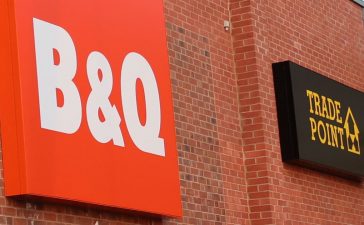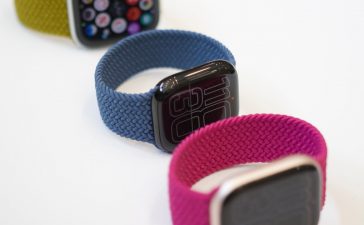Technology developed by NIU Electrical Engineering Professor Lichuan Liu and designed to prevent hearing loss in the most vulnerable of newborns could soon find its way into hospital neonatal intensive care units (NICUs).
NICUs can be noisy. The care units are louder than most home or office environments and have sound levels that often exceed the maximum levels recommended by the American Academy of Pediatrics. Hearing impairment is diagnosed in 2% to 10% of preterm infants, versus 0.1% of the general pediatric population.
Aiming to put her electrical engineering expertise to use to benefit others, Professor Liu invented an apparatus, system, and method to significantly reduce harmful noises while maintaining communication between newborns and their parents or caregivers.
In 2014, NIU began a partnership with Invictus Medical, a Texas-based medical device company, to commercialize the technology. NIU licensed its related patents to Invictus, while the company has continued to refine the incubator-based active noise control (ANC) device, now known as the Neoasis.
In July, Invictus announced that the company had received a U.S. Food and Drug Administration (FDA) clearance-for-use declaration for the device.
“With this clearance for use, Invictus has made a huge step towards deploying the Neoasis ANC device in neonatal intensive care units,” says George Hutchinson, PhD, Invictus Medical’s CEO. “It is well documented that a quieter environment has a positive impact, including improved sleep hygiene and weight gain in infants where both are critical for development.
“The NIU team has been a pleasure to work with,” Hutchinson added. “The Office of Innovation has been a great teammate throughout the entire process.”
Understanding the Active Noise Control (ANC) Device
The Neoasis ANC device utilizes a proprietary, innovative active noise control (ANC) system to attenuate noise with canceling sound wave technology. At the same time, it allows a parent’s voice to be directed to the infant, which can also be beneficial for cognitive development. Invictus is currently exploring relationships with strategic partners to get the Neoasis ANC device into NICUs—now possible with the FDA clearance.
While universities and researchers can realize typically modest financial benefits from technology transfer, the primary intent is to broaden the potential impact of research through the creation of innovative products and services for public benefit, said Karinne Bredberg, director of NIU’s Office of Innovation. The office has guided Liu through the partnership, patent processes and licensing.
“This is a big deal for Dr. Liu and for NIU,” Bredberg says. “NIU research has produced other patents and licenses, but we believe this is the first NIU-licensed technology to be incorporated into a device that has an FDA clearance-for-use declaration.”
Mark Hankins, NIU’s assistant director for technology transfer, credited the ingenuity of Professor Liu, as well as a great working relationship with Invictus Medical.
“Dr. Hutchinson in particular was very diligent in trying to move this technology forward and persevered through a number of roadblocks,” Hankins says.
Further reading: NHS Approves Test to Preserve the Hearing of Newborns
Professor Liu said it was about a decade ago when President Lisa C. Freeman, then serving as NIU’s vice president for Research and Innovation Partnerships, brought Liu together with Invictus Medical. While Liu developed an initial prototype, the company refined the device, making the it more commercially accommodating for NICU environments.
“It’s a little different working with industry, as opposed to academia,” Professor Liu says. “It was a learning curve for me, but Invictus Medial has been very professional and easy to work with.”
Over the years, the commercialization process received funding support from the NIU Foundation and a National Science Foundation’s (NSF) Small Business Technology Transfer grant. Liu, herself a mother of two, is excited at the prospect of hospitals using the Neoasis ANC device.
“I think this is fantastic,” Liu says. “I kept working on this project and thought someday there would be payback.
“I have a passion or motivation to work to benefit others,” Liu added. “As a mom, I think this device is really something important. As an engineer, I’m happy to make an impact.”
Liu said her current research includes other ways to use noise cancellation. She is working on a pillow that would cancel out the racket of snoring, and she and NIU Nursing Professor Jie Chen are working on a system for adult intensive care units.
Additionally, Liu is working on an artificial intelligence algorithm that can listen to infant cries and determine whether they are normal or abnormal to potentially indicate a severe or chronic illness. Invictus might incorporate the technology into future versions of its Neoasis ANC device.
Featured image: NIU Professor Lichuan Liu is now conducting research on an artificial intelligence algorithm that can detect the meaning behind babies’ cries. Photo: Northern Illinois University







